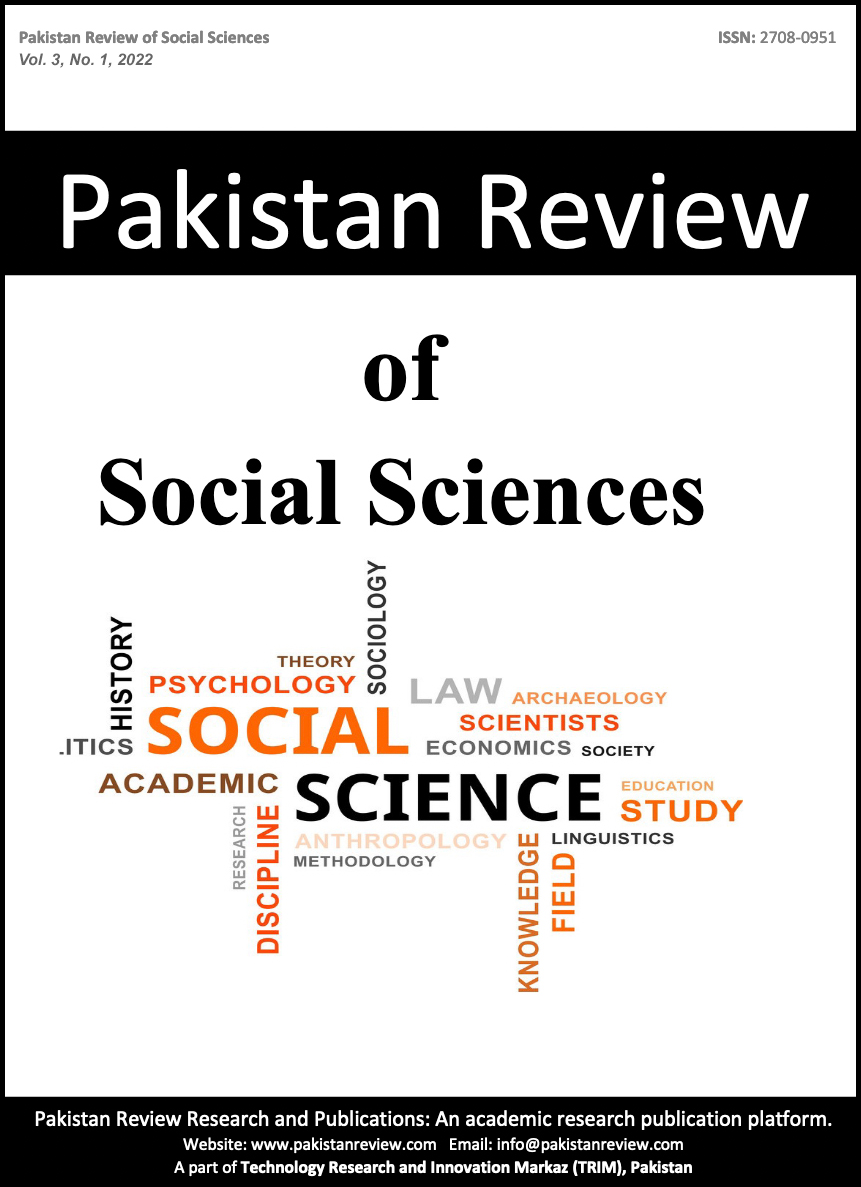Sectarianism and Social Identity in Pakistan
Keywords:
In-group, Out-group, Inter-group, Social Identity, Social categorization, Social Identification, Social Comparison, Discrimination, SectarianismAbstract
The main aim of this study is to explore the role of social identity in inter-group discriminatory behavioral patterns among the religious groups of Shiite and Sunni in the capital city of Pakistan. The theoretical framework of social identity proposed by Tajfel and Turner was utilized to look into socio-cognitive processes influencing the inter-group settings. For selection of the respondents from both religious groups, purposive sampling technique was utilized. The gathered data in the study was looked into with respect to the social identity theory. The results of the study suggested that socio-cognitive processes of social categorization, social identification and social comparison in the individuals resulted in discriminatory patterns in the inter-group relations among the Shiite and Sunni religious schools of thought. The data also illustrated that additional factors of international actor’s involvement, state policies, socialization process and real/ perceived deprivation influenced the social identities of the respective religious groups in inter-group settings. The results of the study showed a positive correlation between the role of social identity and inter-group discriminatory patterns supporting the utilization of Tajfel and Turner theoretical framework in the universe of the study. Hence, social identity results in inter-group discriminatory patterns in the universe of the study.
Downloads
Published
Issue
Section
License
Submission declaration
Authors retain the copyright to their work and grant the Pakistan Review of Social Sciences (PRSS) the right of first publication under a Creative Commons Attribution 4.0 International (CC BY 4.0) license. This license allows others to share, adapt, and reuse the work for any purpose, including commercial use, as long as appropriate credit is given to the original authors and the journal.
By submitting a manuscript, authors confirm that the work has not been published previously (except as an abstract, lecture, or academic thesis), is not under review elsewhere, and has been approved by all authors and relevant authorities. Once accepted, the article will be openly accessible under the CC BY 4.0 license, ensuring wide dissemination and reuse with proper attribution.






